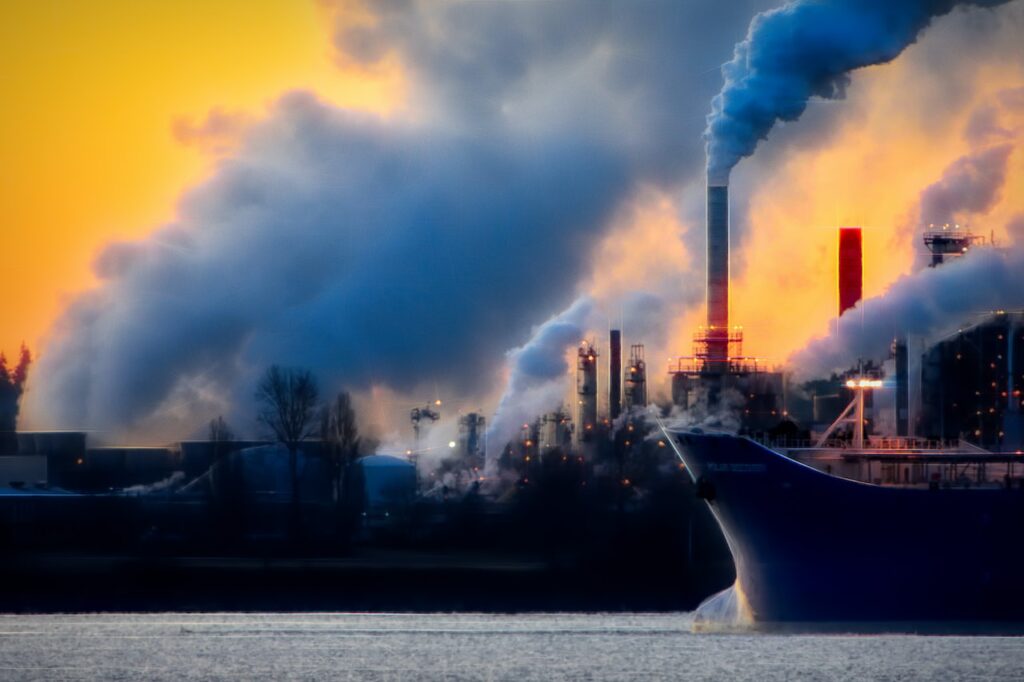
Pollution has emerged as one of the most pressing global challenges of our time, posing significant threats to the health of both humans and the environment. It encompasses various forms, including air, water, and soil pollution, as well as noise and light pollution. The widespread presence of pollution has far-reaching consequences for ecosystems, biodiversity, climate change, and human well-being. This article explores the detrimental effects of pollution and emphasizes the urgent need for collective action to combat this environmental crisis.
Air Pollution
Air pollution is a silent killer that affects millions of people worldwide. It primarily stems from industrial emissions, vehicle exhaust fumes, and the burning of fossil fuels. The release of pollutants such as particulate matter, nitrogen oxides, and sulfur dioxide into the atmosphere not only diminishes air quality but also contributes to the onset of respiratory and cardiovascular diseases. Additionally, air pollution is a significant driver of climate change, exacerbating global warming and causing severe weather events.
Water Pollution
Water pollution poses a severe threat to aquatic ecosystems, marine life, and human health. Sources of water pollution include industrial waste, agricultural runoff, and improper disposal of chemicals and plastics. Pollutants discharged into water bodies contaminate drinking water sources, disrupt aquatic ecosystems, and lead to the destruction of marine habitats. The presence of toxic chemicals in water can have detrimental effects on human health, causing diseases, impairing organ functions, and even leading to death.
Soil Pollution
Soil pollution is often overlooked, but its consequences are equally significant. Chemical pollutants from industrial activities, improper waste disposal, and excessive use of pesticides and fertilizers contaminate the soil, affecting soil fertility and crop productivity. This pollution not only threatens food security but also contributes to the loss of biodiversity and the destruction of delicate ecosystems. Contaminated soil poses a long-term risk to human health as toxic substances can enter the food chain, posing a threat to those who consume contaminated crops.
Noise and Light Pollution
While less commonly discussed, noise and light pollution have adverse effects on both the environment and human well-being. Noise pollution from transportation, construction, and industrial activities disrupts ecosystems, causing stress and harm to wildlife. In urban areas, excessive noise can lead to sleep disturbances, hearing loss, and increased stress levels among residents. Light pollution, mainly caused by excessive artificial lighting, disrupts natural ecosystems, affects wildlife behavior, and hampers astronomical observations.
The Urgent Need for Action
Addressing pollution requires a multi-faceted approach that involves governments, industries, communities, and individuals. Here are some key steps we can take:
- Transition to clean energy: Governments and industries must invest in renewable energy sources and promote sustainable practices to reduce reliance on fossil fuels, thereby curbing air pollution and mitigating climate change.
- Strengthen environmental regulations: Governments should enforce stricter regulations on industrial emissions, waste management, and chemical usage to prevent pollution at its source.
- Promote sustainable agriculture: Encouraging organic farming practices, reducing pesticide use, and implementing effective waste management systems in agriculture can help minimize soil and water pollution.
- Raise awareness and educate: Educating communities and individuals about the detrimental effects of pollution and providing practical solutions empowers them to make informed choices and take action to protect the environment.
- Encourage recycling and responsible consumption: Promote recycling initiatives and reduce waste generation by adopting sustainable consumption patterns, using eco-friendly products, and minimizing single-use plastics.
- Support international cooperation: Pollution knows no boundaries, and therefore, international cooperation is essential in tackling this global crisis. Governments, organizations, and individuals must work together to share knowledge, resources, and best practices.
Conclusion
Pollution is a grave threat to our planet and our well-being. Its devastating effects are felt across all aspects of life, including the environment, human health, and ecosystems. However, by taking immediate and concerted action to reduce pollution, we can pave the way for a cleaner, healthier, and more sustainable future. Let us unite in our efforts to combat pollution and preserve the beauty and integrity of our planet for generations to come.